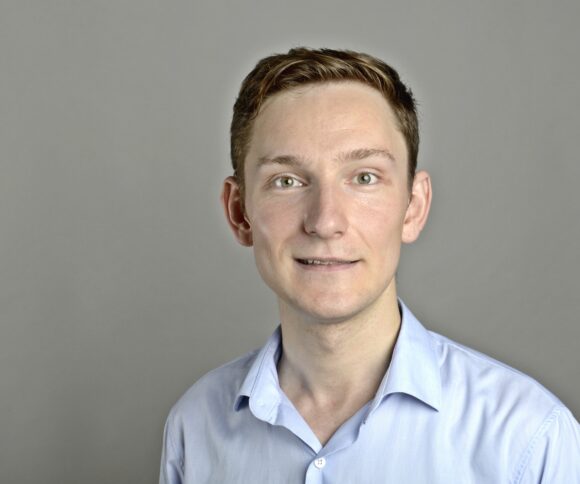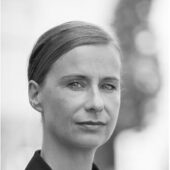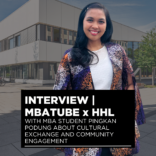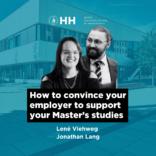
Interview with New Leipzig Talents Coach Oleg Fedoseev
Learning To Work With Purpose
We are excited to share a new interview series with HHL Alumni engaged as New Leipzig Talent (NLT) coaches. In today’s interview Prof. Timo Meynhardt, who launched the program jointly with Psychologist Martina Beermann, talk to Oleg Fedoseev about why learning to work with purpose is becoming more important for tomorrow’s leaders.
Oleg Fedoseev, who joined the NLT coaching team in November 2020, is passionate about self-leadership and purpose. During his time at HHL he offered workshops on self-reflection within NLT and dedicated his master’s thesis to the subject.
After graduating, he trained as a coach. He recently started in the doctoral program “Ethics and Responsible Leadership in Business” at the Wittenberg Center for Global Ethics on the topic of “Ethical Orientations for Management Coaching Programs”.
Purpose hurts, right?
Purpose lies in the heart of the Leipzig Leadership Model. As a coach, you focus deeply on the influence of passion, higher goals and meaning. You dedicated your master thesis to individual purpose, self-leadership and self-reflection in the LLM context. Why so?
At the moment we see a situation when leaders make an effort to inspire employees and be attractive to the outside world by providing a purpose-driven work experience. But it is still often difficult for people to see where the real value of an entrepreneurial or organizational activity lies. As a result, less value is being perceived and this may translate into lower motivation and even employee dissatisfaction.
An organization’s vision or mission cannot substitute a purpose. I believe that the essential ingredient to equip leaders with the capability to inspire others is purpose. That is the inner dedication to contributing to the greater good as a guiding principle for everything we do. It is a matter of self-leadership.
Purpose is the inner dedication to contributing to the greater good as a guiding principle for everything we do. It is a matter of self-leadership.
What does self-leadership mean to you?
I like how the Leipzig Leadership Model describes self-leadership as a conscious decision for a purpose and its consistent implementation.
The Leipzig Leadership Model serves as a compass without being normative, as it does not aim to prescribe the goals and values of good leadership. The Model points out fundamental dimensions of leadership that should not be neglected – initially leading to questions rather than answers. It also emphasizes advancement and has clearly defined dimensions (the ‘why’, ‘how’ and ‘what’) that give guidance in a dynamic environment.
The Leipzig Leadership Model says that being aware of one’s own motivations and strengths as well as finding coherence and authenticity is one of the biggest challenges for leaders. If we can’t manage ourselves, it is unlikely that we will be able to lead others. A key to this is the ability to self-reflect, that is, the very act of thinking about oneself. You view self-reflection as a source of purpose and critical for successful self-leadership.
I believe that leaders can find the essence of their own purpose in an authentic way by going through a personal and ongoing journey of self-reflection. For trustworthy leadership, it is beneficial to know yourself well, to understand who you are, the context you are living in and how you have grown up.
Develop a set of tool to match your personal goals
This allows you to develop a set of useful tools and attitudes that fit your personality, surroundings, backgrounds and goals. Discussions on purpose are often too focused on developing some kind of universal formula for finding sense and meaning. Such a formula evidently does not exist. What study programs, training and also coaching can do is equip leaders with tools.
Of course, everyone chooses for him- or herself which tool is the right one. Providing a framework that identifies critical dimensions rather than ready-made answers, the Leipzig Leadership Model can be one valuable instrument.
Self-leadership is a conscious decision for a purpose, followed by consistent implementation
In our model, we argue that purpose goes beyond self-interest and points to something bigger than ourselves. This kind of self-transcendence seems hard to grasp in the first place. In your thesis, you identified three approaches to purpose and how they can be realized. What did you find?
My focus was to take a more detailed look at the purpose dimension in the Leipzig Leadership Model. I wanted to find out what can really support and bring forward the process of self-reflection. Out of a number of original thinkers I focused on the work of Stephen Covey, Vladimir Gerasichev and Simon Sinek. All three authors are quite influential in the practice-oriented discourse in purpose.
STEPHEN COVEY: 7 habits to reach your desired state
For example, Covey introduces “seven habits” which can help a person to consciously move from A to B. A refers to the current state, B to a desired state. The different habits “provide an incremental, sequential, highly integrated approach to the development of personal and interpersonal effectiveness.” Covey assumes that purpose is a question of seeing oneself as an author of his or her life.
VLADIMIR GERASICHEV: Changing your interpretation of a life event
In contrast, Gerasichev, is less optimistic about this sense of being in command of oneself. For him, it can both be beneficial to believe that there is a choice in life or not, whether we are victims or not. In the first case, we may change the situation we are in. In the second case, we may need to accept it and start changing the interpretation of it.
SIMON SINEK: Finding your why
Yet another different approach is provided by Sinek. His central concept “Golden Circle” centers around the question of why a person intends to move from A to B anyway and how we can find out what an attractive “B” could look like.
More on the New Leipzig Talents Program
To a large degree, it sounds like yet another version of what we know about goal setting, self-efficacy and dealing with cognitive dissonance. Where is the difference between these approaches?
It’s all about perspectives and practical wisdom. Let’s imagine a situation where someone is feeling despair after having failed and is having trouble accepting that their goals are now out of reach. Following the ideas by Gerasichev, you would be invited to learn that events and interpretations are not the same. We have the choice to escape our routines and stereotypes. It does not mean we should deny or distort reality.
He calls for becoming aware and then accepting that there are alternative ways of looking at the world. A painful but necessary step. This very choice of not being caught in just one interpretation is a pre-condition to grow, to become more independent and to show more respect to others.
Taking responsibility for your actions
The seven habits by Covey can tell you what it means to take responsibility for your actions and why you should start with the end in mind, for example by asking yourself what it is you want to be remembered for. And not to forget: Covey calls us to put much more energy into understanding than in efforts to be understood.
Discovering how to work with purpose
Yet another perspective is provided by Sinek when he argues that the search for a purpose is not a process of invention, but rather one of discovery. As he believes in a certain notion of balance (like a “golden circle”), a purpose must come naturally for a person and fit its context.
We cannot grow alone, and only develop in interdependencies with others and thereby transcend our individual gains.
We see your point, each of the three authors articulates different aspects of the individual quest for meaning and longing for purpose. It takes us to a so-called “fact of life”: It is in our nature to avoid pain, be it physical or mental. However, if we strive to avoid pain by all means, we also limit in some way our experiences and with them our own development. It is not without reason that there is the saying: “No pain, no gain”. Purpose hurts, right?
We should accept the idea that there are no guarantees in life and there cannot be any. There is no guarantee that a model, idea or experience will be beneficial for you and there is always the possibility that it can be painful. But there is also always a chance that if you try you might be successful in the end. But you won’t know unless you try. Or as Baggar Vance put it in the great movie “The Legend of Bagger Vance”: “You can’t win or lose. You can just play”.
You say it’s important to take the inner dedication to contribute to the greater good as a guiding principle for everything we do. How would you coach for such an extended worldview.
I think it’s important to find personal access to this topic and to translate it to a certain person or company. I would start a deeper reflection on what it means in a concrete and precise way to create value and pursue this principle of contributing.
We could take multiple perspectives here – from a person, a company, a community or a country, even the whole world! Could this principle, for example, give certain stability in a VUCA-World? Can making decisions and communicating them be easier or harder? What quality of meaning and satisfaction results from following this principle?
One of the most important lessons of the covid-19 crisis is to realize that our society is vulnerable and that public value is really important.
Are there already lessons that coping with COVID-19 pandemics teaches us?
One of the most important lessons is to realize that our society is vulnerable and that public value is really important. I also see an increased awareness for purpose questions – what is really needed and what is not. What does responsibility mean when we only have one health and one world to live in?
What we really like is how you argue facing reality as is, even if it is often hard to stand. Thank you, for sharing your ideas which show how valuable a deeper look at individual purpose is, far beyond the current fashionable quest for it.
This interview was conducted by Professor Meynhardt and Psychologist Martina Beerman (Career development).

Manager New Leipzig Talents


